Choosing the Right Trailer Harness for Your Vehicle
Section 1: What is a Trailer Harness?
A trailer harness, also known as a trailer wiring harness or towing connector, is an essential component used to connect the electrical system of a towing vehicle (such as a car, truck, or SUV) to a trailer. It ensures that the trailer's lights, brakes, and other electrical functions operate in sync with the vehicle, providing safety and compliance with road regulations. Whether you're hauling equipment for work or enjoying a weekend camping trip, the right trailer harness ensures reliable performance and safety on the road.
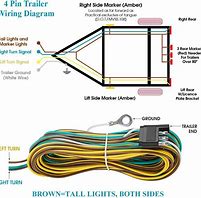
Section 2: Types of Trailer Harnesses
①1-Pin Trailer Harness
Typically used for a single function, such as a tail light or ground wire. Supports only one function, usually a tail light or ground connection.
Very simple trailers, such as small single-light trailers or off-road trailers.
Suitable for applications that do not require complex functionality.
Simple design, low cost, and easy to install.
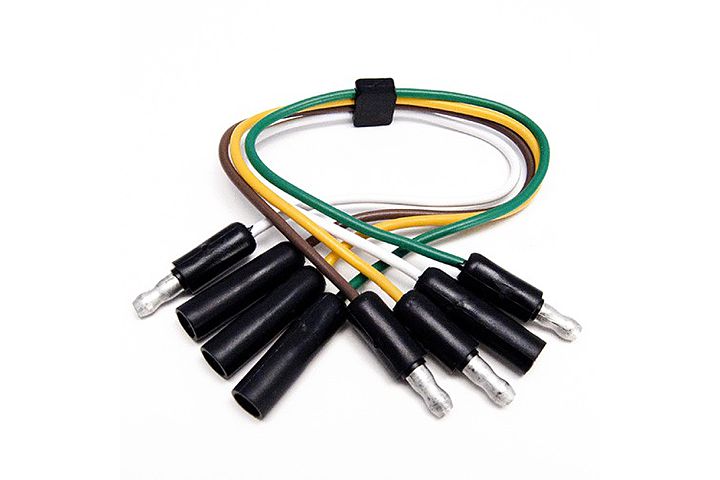
②2-Pin Trailer Harness
Typically used for tail lights and ground wire.
Supports tail lights and ground connection.
Small trailers, such as lightweight utility trailers or off-road trailers.
Suitable for basic lighting needs.
Slightly more functionality than a 1-pin harness, while maintaining a simple design.
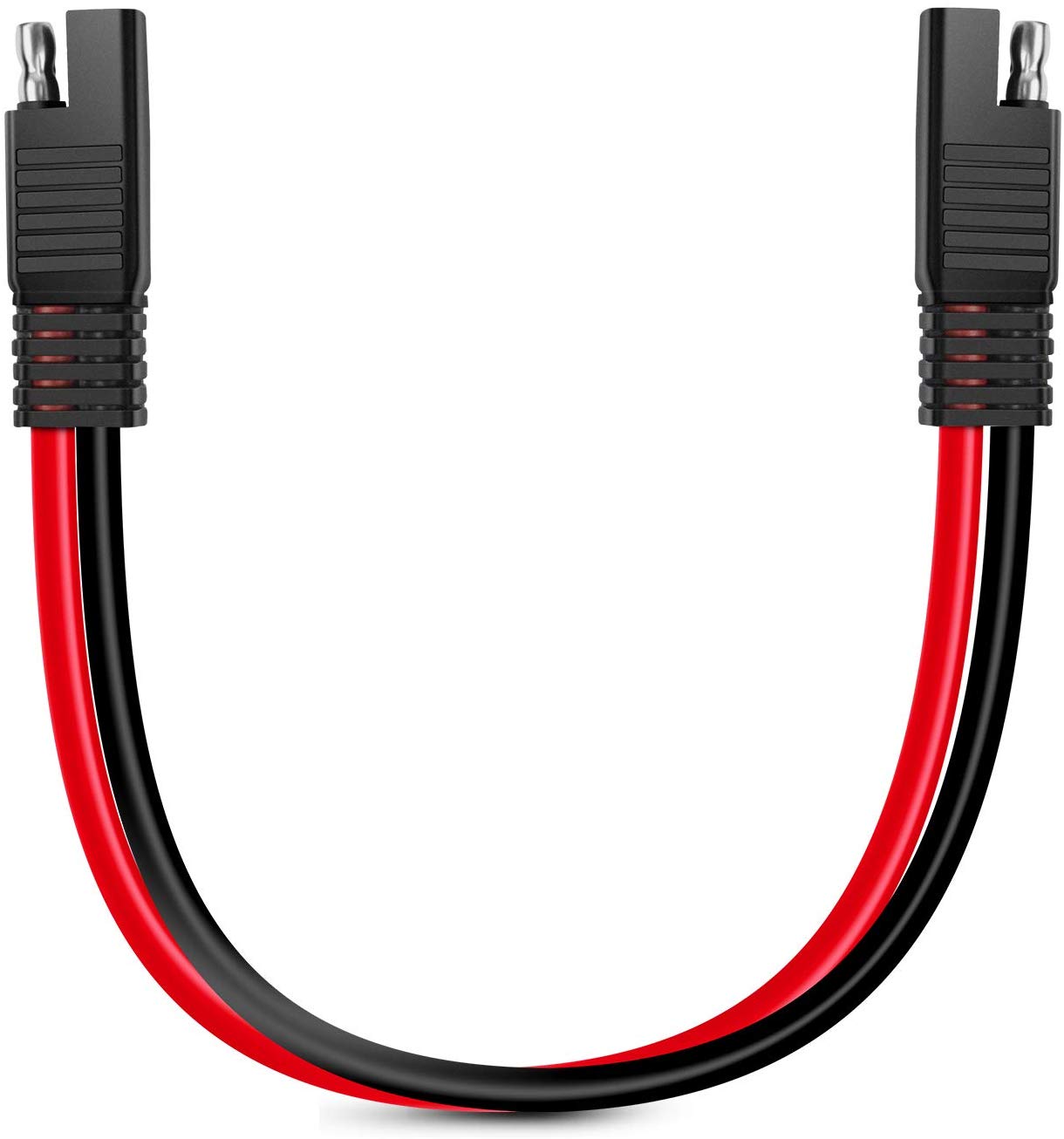
③3-Pin Trailer Harness
Typically used for tail lights, brake lights, and ground wire.
Supports tail lights, brake lights, and ground connection.
Small trailers, such as lightweight cargo trailers or motorcycle trailers
Suitable for basic lighting and braking needs.
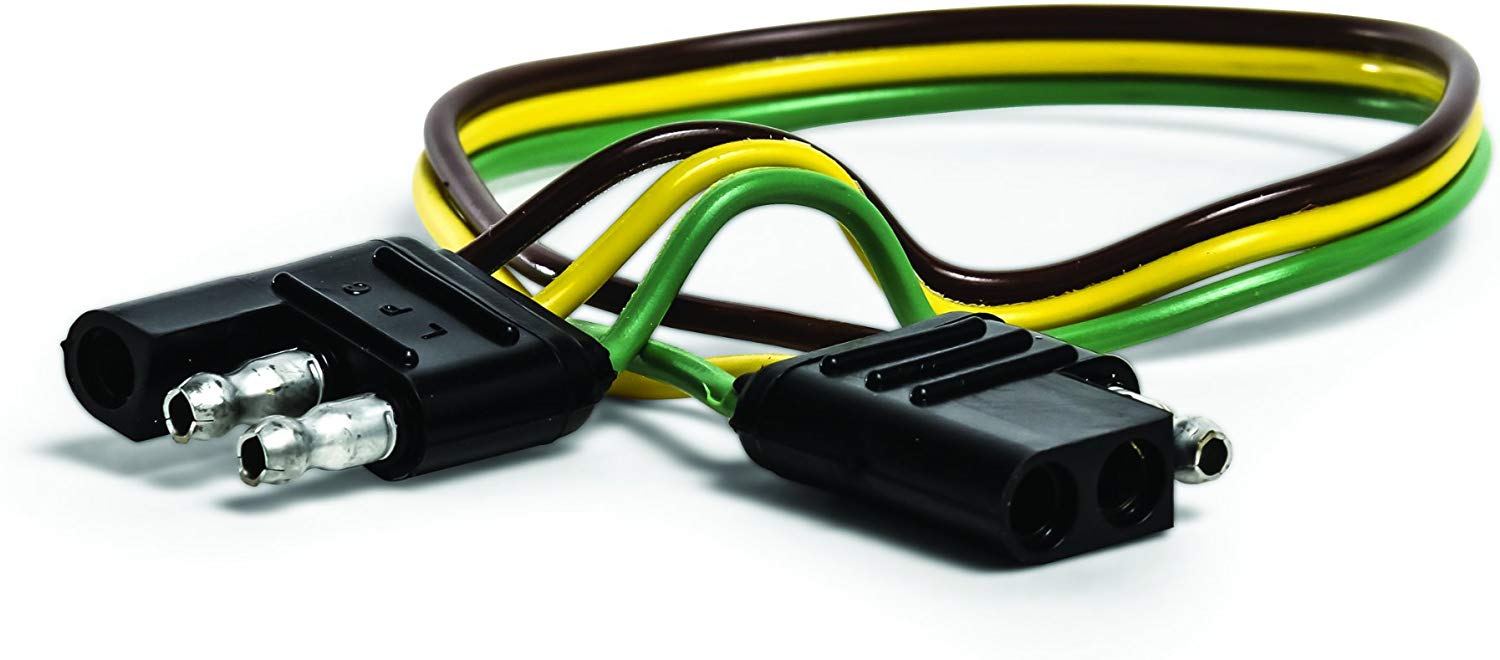
④4-Pin Trailer Harness
Tail lights, left turn signal, right turn signal, and ground wire.
Supports tail lights, brake lights, left/right turn signals, and ground connection.
Small trailers, such as lightweight utility trailers, small cargo trailers, or motorcycle trailers.
Suitable for applications that do not require additional features like electric brakes or charging systems.
Simple design, easy to install, and cost-effective.
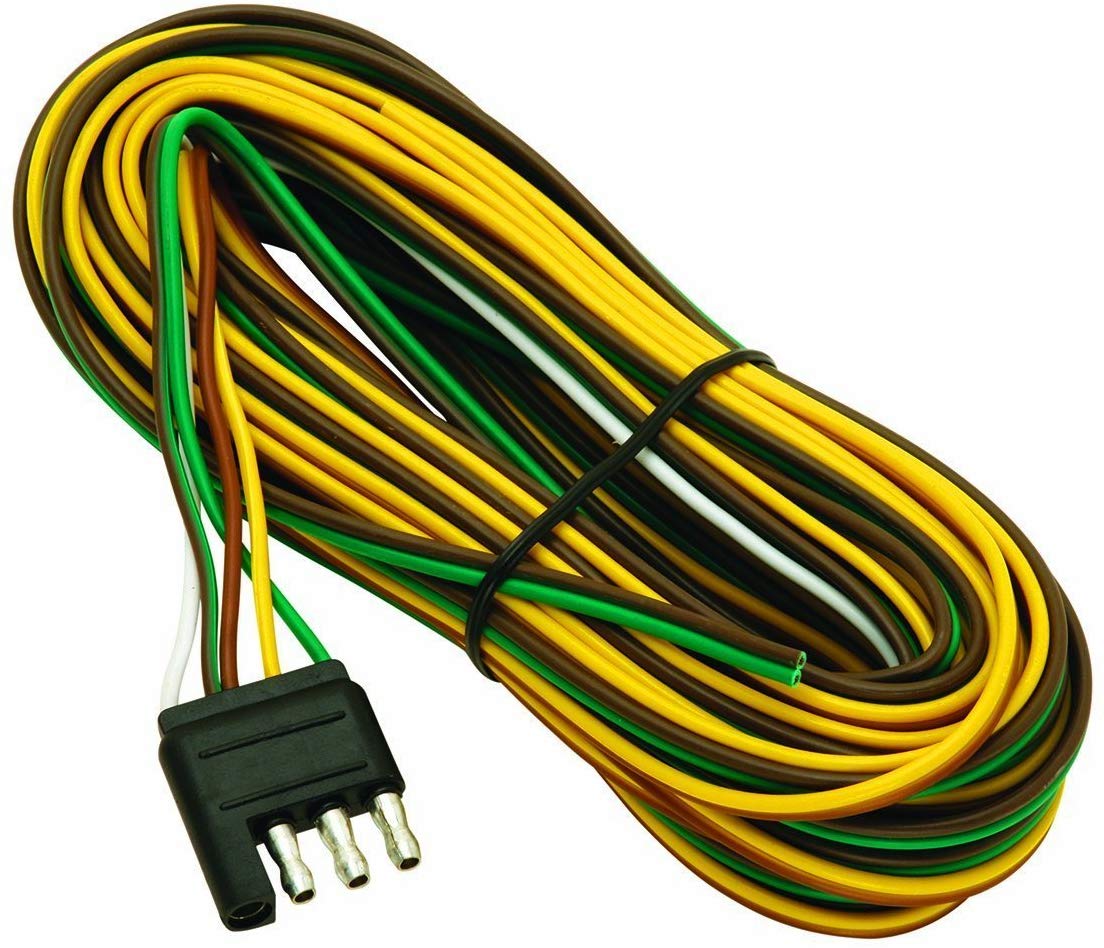
⑤5-Pin Trailer Harness
Adds a blue wire for auxiliary functions (e.g., reverse light or backup light) to the 4-pin configuration.
Supports basic lighting functions plus an additional auxiliary function (usually a reverse light).
Small trailers that require a reverse light, such as small cargo trailers or boat trailers.
Suitable for users who need a simple extension of functionality.
More functionality than a 4-pin harness, while maintaining a relatively simple design
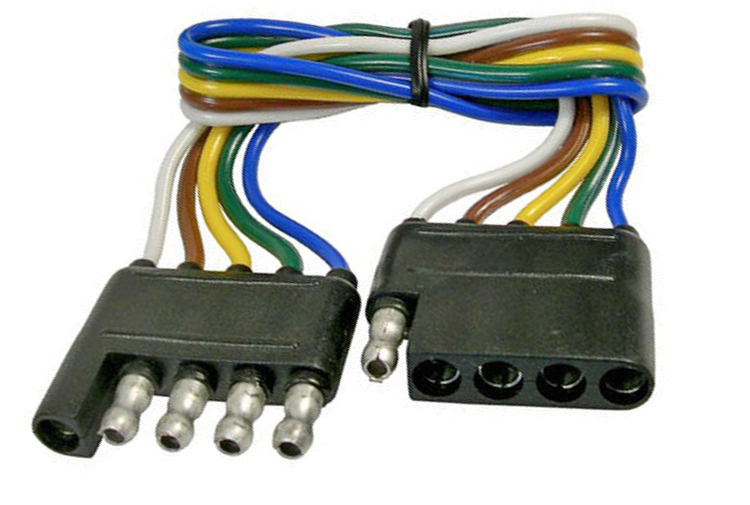
⑥6-Pin Trailer Harness
Adds an additional wire (often for auxiliary power or special functions) to the 5-pin configuration.
Supports basic lighting functions, reverse light, and auxiliary power.
Medium-sized trailers that require auxiliary power or special functions.
Suitable for specific brands of trailers or specialized applications.
More functionality than a 5-pin harness, catering to specific needs.
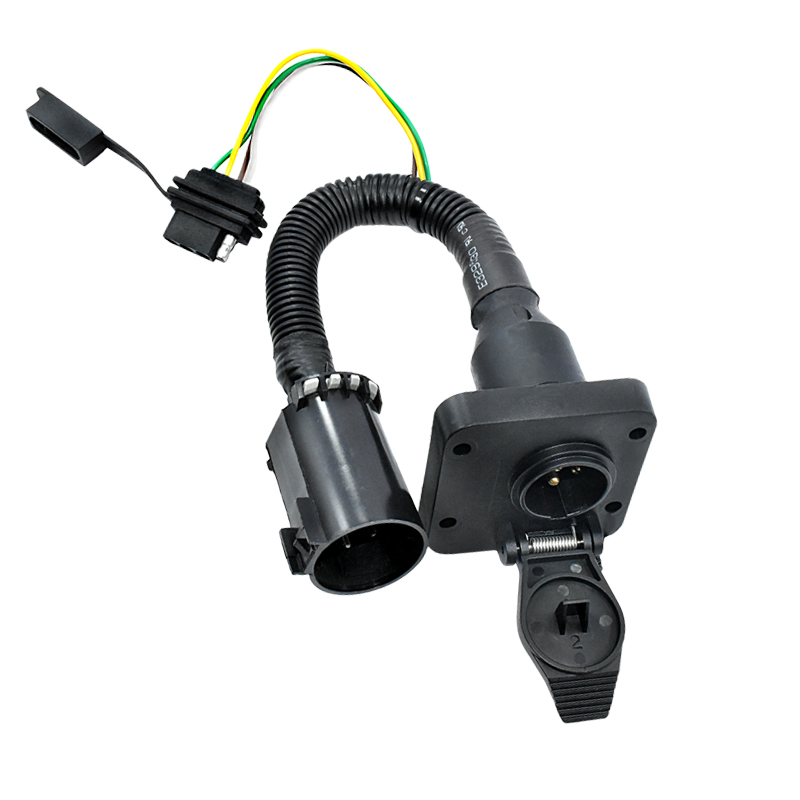
⑦7-Pin Trailer Harness
Tail lights, left turn signal, right turn signal, ground wire, electric brakes, auxiliary power, and battery charge line.
Supports all basic lighting functions, plus electric brakes, auxiliary power, and battery charging.
Large trailers, such as RVs, boat trailers, or heavy-duty cargo trailers.
Suitable for applications requiring electric brakes, auxiliary power, or battery charging.
Comprehensive functionality, ideal for complex and high-load towing needs.
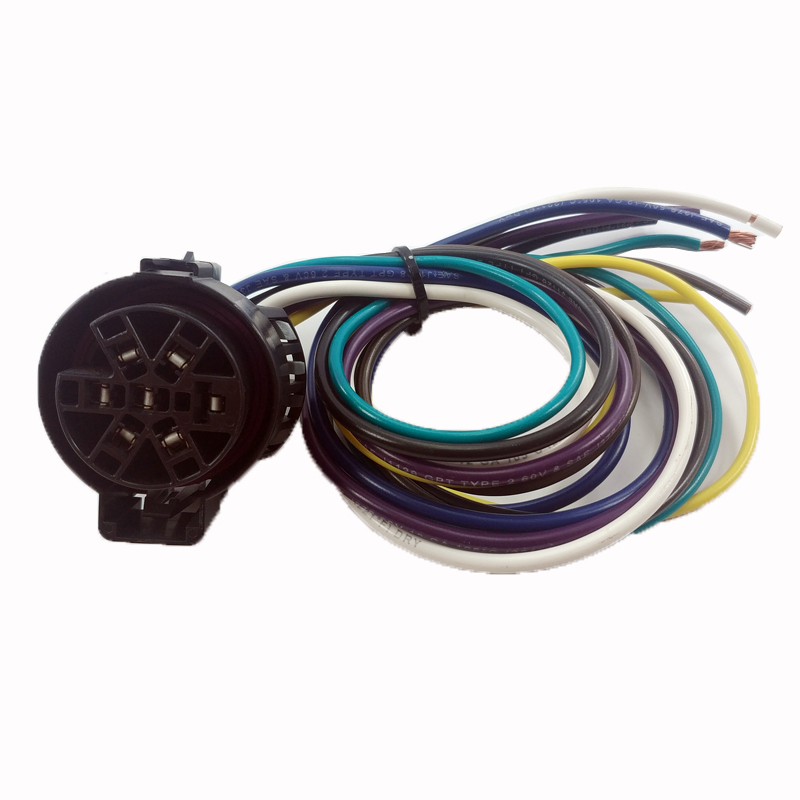
Section3: Follow These Steps to Choose the Best Harness.
First: Assess Your Trailer’s Electrical Needs
Evaluate the requirements your trailer, such as the number of lights, presence of electric brakes, and any auxiliary power needs.
Second: Match the Connector Type
Determine the type of connector that is compatible with both your trailer and vehicle.
Third: Consider the Environment
Assess the environmental factors your trailer will encounter, including moisture, dirt, and extreme temperatures, and select a harness that offers adequate protective characteristics.
Fourth: Consult the cable with Experts
Connecting with cable experts or your trailer’s manufacturer for recommendations based on your specific needs.
Section 4: Where can you buy tralier wiring harness?
Spare Shop and Online Store
These places usually have a harness in stock that suits the needs of your vehicle, but what they have is generally standard parts, not customized processing. In spare shop, you should note the specifications and brand of your vehicle and trailer wiring. which will help you select the right harness for your car and trailer. And when you buy in the online shop, you should note the seller evaluation and the return policy.
Hooha Supplies Custom Trailer Wiring Harness
Feel free to contact us for custom trailer wiring harness solutions. We specialize in designing harnesses that perfectly match your vehicle and trailer specifications. With strict quality control and compliance with industry standards, we ensure reliable performance. If you need harnesses tailored to your unique requirements, we’re here to help!
Section5 Conclusion:
Selecting the right trailer wiring harness is crucial for safe and efficient towing. By understanding the types of harnesses, key features, and your trailer’s specific requirements, you can make the best choice. Proper installation and regular maintenance will also ensure optimal performance and durability. If you need help choosing the right trailer wiring harness, don’t hesitate to reach out to WiringLabs. Our experts are here to assist with all your trailer wiring needs!"
